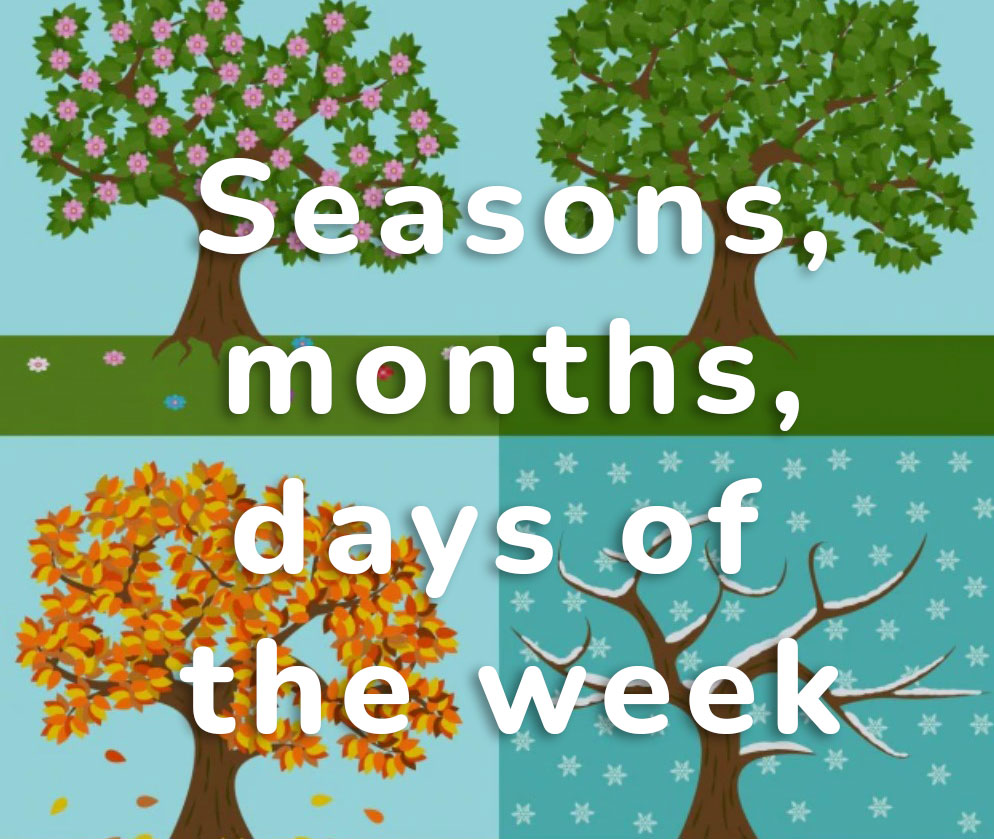When most people think of the French, they think of a culture that is refined, elegant and perhaps a little bit snooty. But there is more to the French than just appearances. The French are also a nation that loves to celebrate, and they have an incredibly rich history and culture that is worth exploring.
If you’re looking for a way to experience France beyond just the tourist destinations, then consider learning about the French days of the week, months and seasons. Each offers a unique glimpse into how the French live their lives.
How to say the days of the week in French?
In French, the days of the week are named after the corresponding planets in the solar system. Here is a list of the French days of the week with their English translations:
- lundi (Monday)
- mardi (Tuesday)
- mercredi (Wednesday)
- jeudi (Thursday)
- vendredi (Friday)
- samedi (Saturday)
- dimanche (Sunday)
💡 In France, on paper or digital agendas, the week begins on Monday and ends on Sunday.
Caution!
Never use an article before the day of the week!
You don’t say: “Le lundi, je suis allé au cinéma“,
but you say: “Lundi, je suis allé au cinéma” (Monday, I went to the movies).
If you use an article in front of the day of the week in French, it is to indicate a habit, to say that every Monday or every Thursday, etc., you do something special.
Example: “Le lundi je vais à la plage”. (On Monday I go to the beach).
This means that in general, every Monday, I go to the beach.
Do you like learning French with videos?
Receive our free video newsletter every Friday in your e-mail box. You will get 3 “Tips & Tricks” on grammar, vocabulary, phonetics or French culture.
👉👉 Sign up now!
Learn the months of the year in French
In French, the months are named after the corresponding numbers in the Roman calendar. Here is a list of the French months with their English translations:
- janvier (January)
- février (February)
- mars (March)
- avril (April)
- mai (May)
- juin (June)
- juillet (July)
- août (August)
- septembre (September)
- octobre (October)
- novembre (November)
- décembre (December)
Caution!
When you say or write a date in French, you start with the day, then the month and finally the year.
The format is: jj/mm/aaaa (jour/mois/année)
And to indicate the days, you will use the cardinal numbers (2, 3, 7, 18, 30) except – and yes, there is often an “except” in French – for the first day of the month. For the first day of the month, in French, you will use the ordinal number: le 1er (the first).
Examples:
- Lundi 9 mai 2022 -> “lundi neuf mai deux mille vingt-deux” -> 09/05/2022
- Mercredi 1er juin 2022 -> “mercredi premier juin deux mille vingt-deux” -> 01/06/2022
How do you say the four seasons in French?
Here is the list of the French seasons with their English translations:
- été (Summer)
- automne (Fall)
- hiver (Winter)
- printemps (Spring)
Are you interested in classical music? Maybe you know the first four baroque concertos of Antonio Vivaldi?
In France, they are very well known because many companies or administrations use them as music to make you wait on the phone.
Look at this funny scene from the famous French movie Intouchables:
How the French experience time?
The French experience time in a much more relaxed way than many other cultures.
For example, the French take their time during mealtimes, enjoying long conversations and lingering over their food. They also enjoy taking long vacations, often traveling to multiple destinations throughout the year.
This slower paced lifestyle can be frustrating for those who are used to living more quickly, but it is one of the things that makes French culture so unique and interesting.
So now that you know how to say the days of the week, months and seasons in French, what are you waiting for? Get out there and explore all that France has to offer.
And when people ask you how to say these things in French, you can be the one who impresses them with your knowledge!
Au revoir !
Articles that might interest you:
- What’s the best way to learn French at home?
- How to ask a question in French? The different types of questions that can be asked in French
- 10 fun facts about the French language
- Learn French days of the week, the months and the seasons
- Is French easy to learn for Indians?
- Learn French while you sleep
- Can I learn French in 3 months?
- Learn French in Dubai: French classes for all levels
- How can I learn French fast?
- Why should you learn French?



